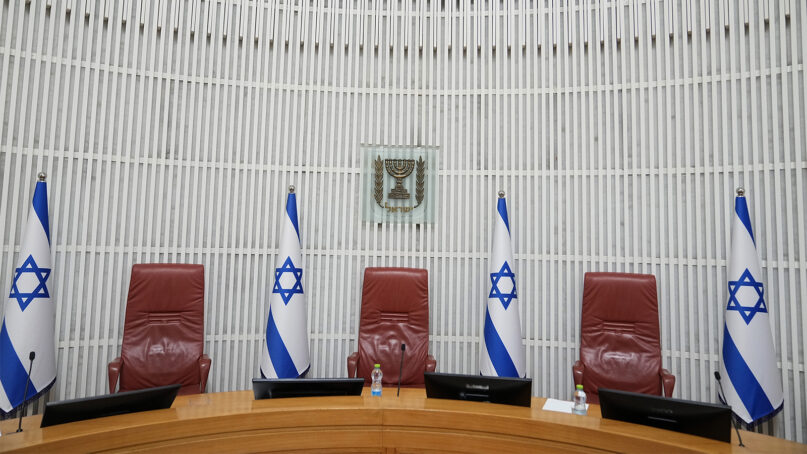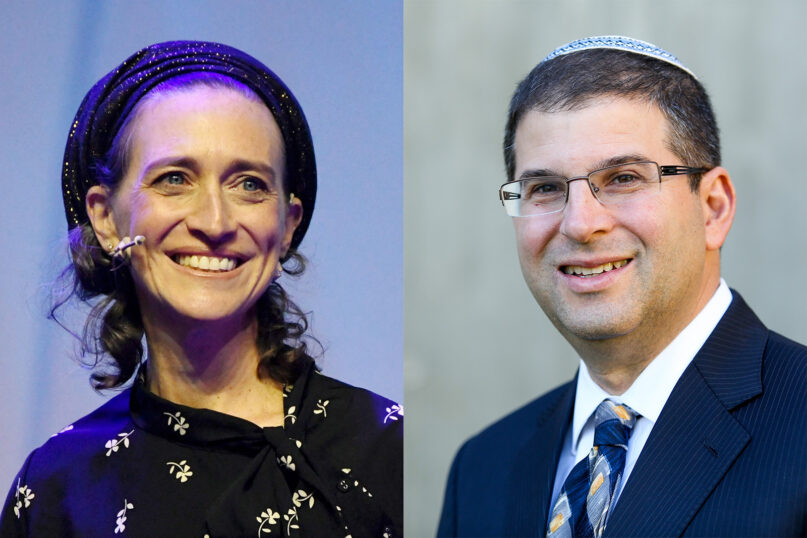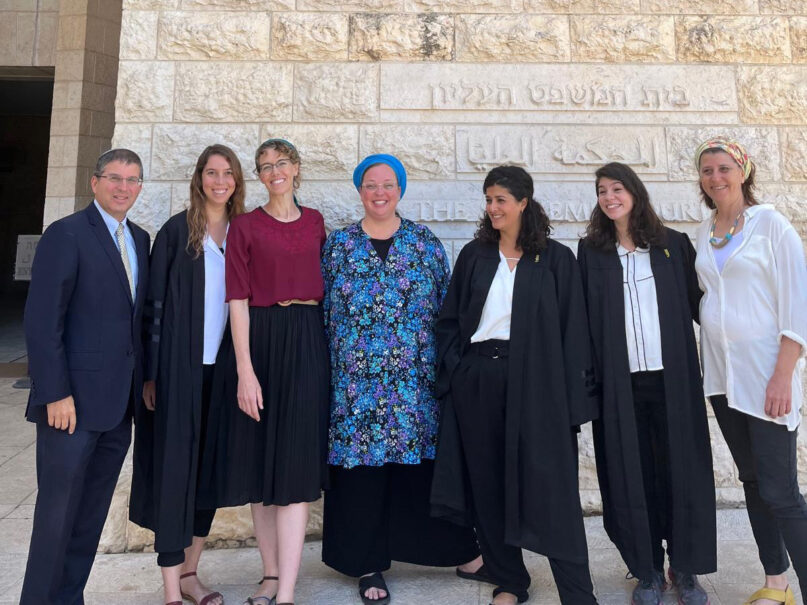(RNS) — Israel’s state rabbinate must open up its rabbinic expertise exams to women, Israel’s supreme court said on Monday (July 14) in a ruling hailed by advocates for pluralism and egalitarianism in the Jewish state’s religious institutions.
“Discrimination between women and men regarding eligibility to take the Chief Rabbinate exams is unacceptable, just as discrimination between women and men regarding eligibility to enjoy any other service provided by a public authority in the State of Israel is unacceptable,” Justice Ofer Grosskopf wrote in the court’s decision.
The ruling, however, does not call for the strictly Orthodox rabbinate to ordain women as rabbis, but it opens up to women the body’s licensing exams that test in a variety of areas of Jewish law.
The rabbinate gives more than a dozen exams, on topics ranging from kosher slaughter to ritual purity to business and agricultural law, and requires a certain number to be completed to be eligible for the rabbinic positions it administers. For example, a neighborhood rabbi must pass six, while a city one must have passed 11.
It also awards certificates based on the completion of exams that are treated as equivalent to university degrees and are associated with benefits and salary expectations.
In 2018 Shas, the Sephardic Haredi party, which has exerted the most influence over the rabbinate in recent years, successfully lobbied to have the rabbinic exams be considered the equivalent of a bachelor’s degree for the public-sector jobs for which the Israeli government requires a higher education degree.

The justices’ bench in the Supreme Court of Israel in Jerusalem, Aug. 3, 2023. (AP Photo/Ohad Zwigenberg)
On that basis, three organizations — ITIM, which advocates for pluralism and openness in Israel’s religious institutions; the Rackman Center for the Advancement of the Status of Women; and the Kolech: Religious Women’s Forum — first brought the case before Israel’s courts seven years ago.
“Because Shas was giving so much economic benefit, that actually created a huge inequality,” Rabbi Seth Farber, the director of ITIM, told Religion News Service. “It’s not the (rabbinic ordination) that gives the economic benefits — no one would think that — it’s the exams that give the economic benefits, and because of that, women shouldn’t be left out of the exams.”
Farber explained that Israel requires a bachelor’s degree equivalent for nonrabbinic jobs such as community center director or to qualify for certain ranks in the police force, among others.
In 2014, two rabbis were sentenced in Israel for a decades-long scheme in which they sold more than 1,000 rabbinic ordination diplomas to clients so they could qualify for roles that required an advanced degree.
ITIM argued before the Supreme Court that if men could use their religious scholarship to fulfill the advanced degree requirements, there is no reason that women should not be able to either.
For centuries, the study of Talmud and even the Torah in its original biblical Hebrew had been reserved for men in Orthodox Jewish culture. If women received a religious education, it was often more informal — and in translation, through texts such as the Tsena U’rena, a Yiddish translation of the Bible that became known colloquially as the “Women’s Bible.”
Over the last century, however, that’s seen significant change, and in the last several decades an explosion of religious institutions has emerged to give female scholars an education on par with or even beyond that which is available to men.

Michelle Cohen Farber, left, and Seth Farber. (Courtesy photos)
Farber’s wife, Michelle Cohen Farber, one of the women religious scholars who petitioned the court over the issue, is the founder of Hadran, which encourages Talmud study among Orthodox women. Cohen Farber led a Siyum, a traditional ceremony celebrating the completion of a seven-year cycle of Talmud study, for 10,000 women in 2019.
While some have advocated for women to be ordained fully as rabbis — something non-Orthodox Judaism has accepted for decades — others have simply argued that their scholarship must be acknowledged.
“Once again, women stand at the gates of this Court — women of faith, grounded in their way of life and deeply versed in the world of halakhah,” wrote Justice Daphne Barak-Erez said in the Supreme Court decision, referring to Jewish law. “Once again, they come asking for equal treatment in the field of religious services in the State of Israel.”
The ruling is the latest in a series of wins for women’s participation in the rabbinate championed by the Supreme Court. Last year, the court ruled that women must be given representation on the council that chooses Israel’s chief rabbis, specifically citing their religious scholarship.

Rabbi Seth Farber, left, with some of the plaintiffs at the Supreme Court of Israel in Jerusalem. (Photo courtesy Seth Farber)
Israel’s rabbinate has sweeping powers over all things that intersect with Jewish ritual or law in the Jewish state, including marriage, divorce, conversion and even some aspects of immigration. It has become deeply unpopular to much of the Israeli public in recent years, even to Jews who identify as religious. Many view it as representative only of the most religious sector known as Haredim, and out of touch with the larger Orthodox Jewish population in Israel.
A 2016 Pew study found that Haredim represented only 9% of Israel while other Orthodox Jews, such as Modern Orthodox, made up 13%.
Over the seven years that the case has been contested, the rabbinate strongly opposed the idea, with former Sephardic Chief Rabbi Yitzhak Yosef stating that he would rather get rid of the exams altogether before opening them up to women.
Farber noted that a subsequent offer from former Religious Affairs Minister Matan Kahana would have established a parallel system for women. But after immediately being told that the tests would be less rigorous than those offered to men, ITIM rejected the idea.
“We were opposed to separate but equal, because we didn’t think that really worked,” Farber said.
He is hopeful that with the current ruling, regardless of titles, there will be a framework to acknowledge women leaders’ experience and scholarship, just as there is for male ones.
“We’ve seeded something that will yield its fruit in many, many years,” Farber said. “Next year … if they’ll allow women, you’ll certainly have tens of women apply. But ultimately, the hope is it will change the way people study, because there’ll be new vistas that are that are open to women.
“I can imagine a school saying, ‘We want a woman to be our religious leader, but the minimum requirement is you pass the rabbinate in exams,’” he added. “Ultimately, the community will decide how seriously these things are taken, but my sense is that this will create new institutional opportunities.”




Recent Comments